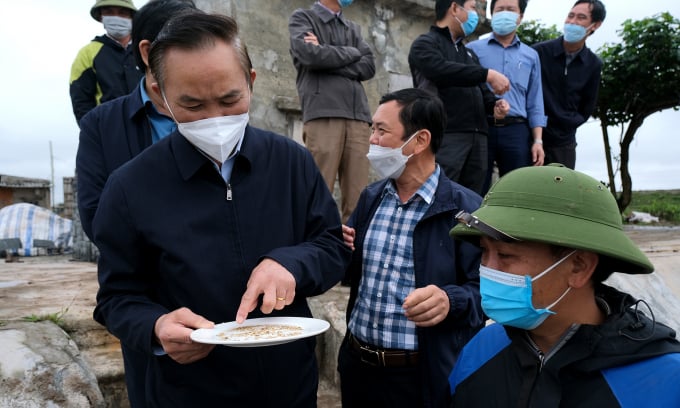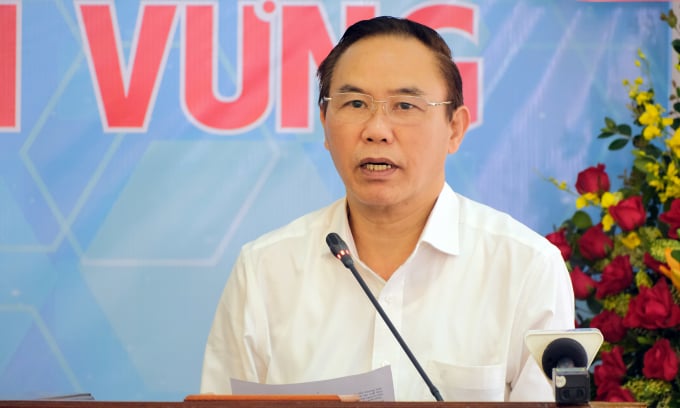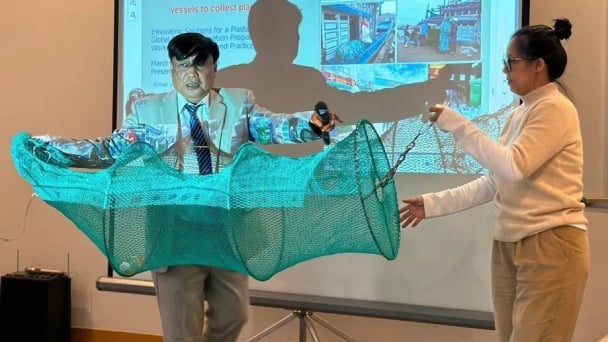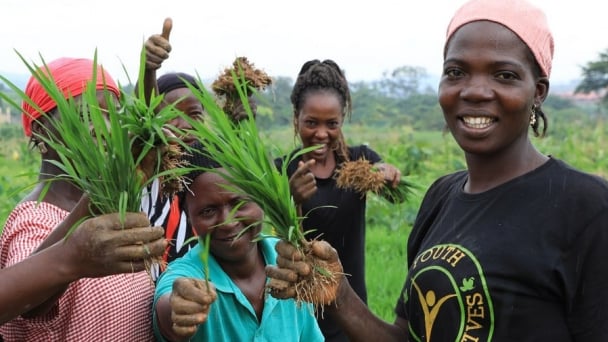May 14, 2025 | 21:33 GMT +7
May 14, 2025 | 21:33 GMT +7
Hotline: 0913.378.918
May 14, 2025 | 21:33 GMT +7
Hotline: 0913.378.918

Deputy Minister Phung Duc Tien inspecting a clam hatchery in the Northern region. Photo: Bao Thang.
Speaking at the Sustainable Mollusk Industry Development Forum in Nam Dinh on April 6, Deputy Minister of Agriculture and Rural Development Phung Duc Tien highly appreciated the role of the mollusk industry in the development of the seafood industry in particular and agriculture in general.
Information from the Directorate of Fisheries shows that in 2021 the total mollusk output is estimated at over 300,000 tons. Bivalve mollusks have been exported to over 67 markets around the world with a turnover of over VND 125 million, an increase of over 20% compared to 2020.
However, according to Ms. Dang Thi Lua, Deputy Director of the Research Institute for Aquaculture I (RIA1), mollusk farming still possesses certain limitations.
Thanks to the application of environmental technology for effective aquaculture management, RIA1 warns that the environment in mollusk farming areas is showing signs of deterioration. In recent years, especially from July to August and from October to March, farming areas often witness mass mortality of clams due to the main reason being high stocking density combined with the abnormal fluctuations of salinity and infection of pathogens in clams.
It’s within expectations that the mollusk industry will continue facing many difficulties and challenges in 2022, such as a decline in resources, instability in seed quality, and the market’s increasing demands on food safety. the product size remains unstable in many places and production areas, and the meat/shell ratio is low because the breed shows signs of genetic degradation.
In response to the situation, Ms. Hoang Thi To Nga, Deputy Director of Nam Dinh Department of Agriculture and Rural Development, said that the province has implemented a food safety control program in consideration of the harvesting of bivalve mollusks since 2009. Two farming areas of Nam Dinh are allowed to harvest and supply raw materials for export processing at the moment.
Nam Dinh will continue to promote the safe clam production and consumption chain in the direction of increasing added value and sustainable development; expand sustainable ASC-certified clam farming areas; apply new scientific technology to develop clam production and consumption link chain in the locality.
Fully aware of the present difficulties and obstacles, Deputy Minister Phung Duc Tien said that mollusk products in the industry had many good opportunities for future development such as a total water surface area of up to 1 million hectares; a total coastline of 3,260km; all levels, sectors and localities in Vietnam strongly shifting the mindset from “agricultural production” to “agricultural economy”.

Deputy Minister Phung Duc Tien speaking at the Sustainable Mollusk Industry Development Forum in Nam Dinh on April 6. Photo: Bao Thang.
The Deputy Minister assigned the Directorate of Fisheries to effectively implement the provisions of the Law on Fisheries 2017 in seed production and commercial farming of mollusks that hold economic value; organize the implementation of the tasks of managing aquaculture conditions and monitoring the aquaculture environment in mollusk farming areas.
As for the Agro Processing and Market Development Authority, the Deputy Minister demanded more proactive actions, regular assessment of market developments and prompt information so that people can know about the present situation and have an appropriate production plan. The unit was also requested to identify valuable processed mollusk products that suit the tastes of consumers and include them in trade promotion activities. This was also one of the authority’s priorities.
The Department of Animal Health and the National Agro-Forestry-Fisheries Quality Assurance Department needed to strengthen quarantine and disease control in seed production, commercial farming, quality control and food safety. This would become the basis for building and developing breeding facilities and disease-free mollusk farming areas as well as ensuring product traceability.
Regarding localities, businesses, industry associations and people, the leader of the agriculture sector proposed the continuation of evaluations and supplement of nurturing areas in accordance with MSC standards. Establishments needed to cooperate and link production in chains to reduce intermediaries and production costs while improving product quality. It was also essential for units participating in the mollusk production link chain to apply certified farming methods (VietGAP, GlobalGAP, ASC) to improve product value.
Translated by Samuel Pham

(VAN) Data from 10,000 farming households will help professionalize production organization and support the implementation of the One Million Hectares Program for High-Quality, Low-Emission Rice Cultivation.

(VAN) FAO Director-General QU Dongyu marks International Day of Plant Health at NENA conference.

(VAN) Deputy Minister of Agriculture and Environment Hoang Trung affirmed that floriculture and ornamental plants are a growing industry that receives significant global attention.

(VAN) The three staple crops dominating modern diets – corn, rice and wheat – are familiar to Americans. However, fourth place is held by a dark horse: cassava.
/2025/05/10/4037-3-223011_495.jpg)
(VAN) Remote sensing technology is becoming an indispensable tool in monitoring resources, developing modern agriculture, and protecting the environment in Vietnam.

(VAN) The trash bag used on fishing vessels can withstand rough sea conditions, including level 8 to level 10 winds and waves. Notably, it can be hung anywhere on the boat.

(VAN) African leaders launched the Kampala Declaration on Building Resilient and Sustainable Agrifood Systems in Africa, marking a bold step toward transforming the continent's agriculture.